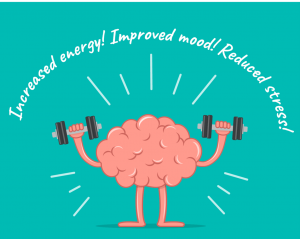



Presentation by Rachel Dool from Just in Time Virtual Assistant – From the AAVIP 2019 Online Summit – Digital Marketing for the Future
Running your own business can be hugely rewarding, but for many small business owners having sole responsibility for the company’s success or failure can take its toll. While it can be tempting to focus all of your time and attention on your business, it’s also essential that you take care of yourself. As an employing small business owner or sole trader, you can face a range of unique challenges that can affect your mental health and the mental health of your staff.
In Australia, small businesses account for nearly 98 per cent of all companies! There’s about 2.2 million small business owners in Australia. We don’t tend to hear the stories about the 80 per cent that fail within the first 18 months nor about the unique set of pressures that small business owners face, the lack of support or the mental health problems that over one-third of people are reluctant to reveal.
1. Regular long hours and intense work – Regularly putting in long hours and working intensely to meet the demands of your business or to get your business off the ground
2. After hours work and blurring the boundaries between work and home – Undertaking business related activities such as responding to business emails and calls after hours – blurring the boundaries between work and home
3. Experiencing feelings of isolation – Feeling isolated with not always having someone to share business worries with or with someone who can understand the demands of running a small business through experience
4. Managing ongoing cash flow and financial issues – Managing ongoing cash flow and financial issues, including chasing invoices and feeling concerned over where the next job is coming from
5. Having multiple roles and additional demands – Having multiple roles as well as managing the additional demands of administrative and government regulations – on top of everything else
6. Feeling responsible to yourself and to others – Feeling responsible to yourself and to others such as family and employees who are being involved in the business to ensure it is successful
Work-related stress occurs when the demands from running your business are greater than your capacity to manage them. While stress isn’t the same thing as mental health conditions such as anxiety or depression, excessive or long-term stress can increase your risk of developing a mental health condition.
“Workplace stress can occur when there is a mismatch between the requirements of the role, your capabilities and resources and supports available.”













Ahead for Business has been developed to help small business owners to take action on their own mental health and wellbeing.
Download the Ahead for Business app for iOS or Android


Join Heads Up – It’s fast, free and keeps you up to date with the latest developments in workplace mental health!
If you are feeling sad for more than a few days, are lacking your usual confidence, feel hopeless, unworthy or lost, or you are tempted to self-harm or self-medicate, please take the first step.
Reach out to a trusted family member or friend.
Or call one of the organisations below:
Download the Ahead for Business app for iOS
Download the Ahead for Business app for Android
Mental Health Screening Tool
Join Headsup
Reading List Download – HERE
Other Apps to try










Australia’s FIRST Not for Profit Association for Virtual Businesses. AVIP is all about YOU, our members, because we value the hard work and association of our members, who represent not only themselves, but their skill driven businesses.
"*" indicates required fields


"*" indicates required fields